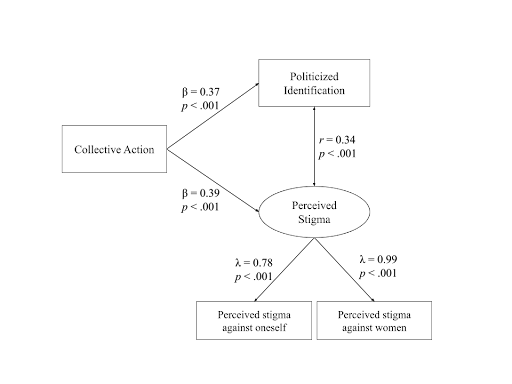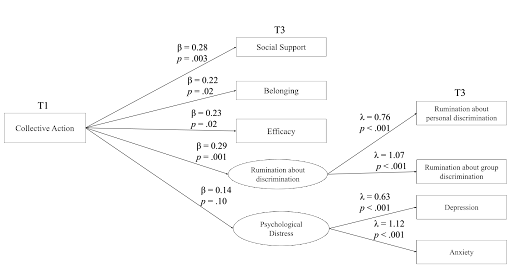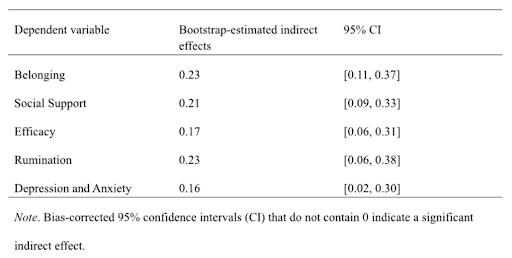Collective Action
Participating in collective action—including activities like protesting, activism, and organizational involvement—has emerged as a viable means of coping with the adverse effects of marginalization and systemic challenges. This study explored collective action as a tool used by women to combat sexism, focusing specifically on feminist movements and ideology. The collective approach to coping has the potential to enhance well-being by promoting group identification, social support, a sense of belonging, and perceived group efficacy. However, it is important to note that collective action may also exacerbate negative outcomes, such as increased perceptions of discrimination, rumination, and psychological distress.
We hypothesized that feminist identification would mediate the association between collective action and positive outcomes, including social support, belonging, and efficacy. Additionally, we hypothesized that perceived sexism would mediate the association between collective action and negative outcomes, including rumination about sexism and psychological distress. Employing a longitudinal design, we sent a Qualtrics survey to a sample of women via email across three time-points to assess our two main hypotheses. Collective action significantly predicted feminist identification and exposure to sexism, and these two mediators significantly predicted each of their corresponding outcomes.
This study was completed as my psychology thesis at The College of New Jersey, alongside my advisors: Dr. Ashley Borders, Dr. Shaun Wiley, and Dr. Adaurennaya Onyewuenyi. Refer to images below for results.
Figure 1. Hypothesized Mediation Model 
Figure 2. A Path Model (Independent Variables to Mediators) 
Figure 3. C Path Model (Total Effects) 
Figure 4. Mediation Model w/ Results 
Figure 5. Direct Effects Model (C’) 
Table 1. Standardized Indirect Effects 
